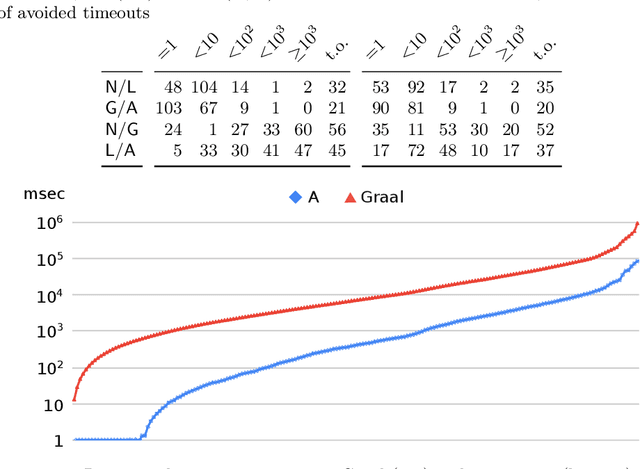Alex Ivliev
Towards Mass Spectrum Analysis with ASP
Dec 18, 2025Abstract:We present a new use of Answer Set Programming (ASP) to discover the molecular structure of chemical samples based on the relative abundance of elements and structural fragments, as measured in mass spectrometry. To constrain the exponential search space for this combinatorial problem, we develop canonical representations of molecular structures and an ASP implementation that uses these definitions. We evaluate the correctness of our implementation over a large set of known molecular structures, and we compare its quality and performance to other ASP symmetry-breaking methods and to a commercial tool from analytical chemistry. Under consideration in Theory and Practice of Logic Programming (TPLP).
Nemo: First Glimpse of a New Rule Engine
Aug 30, 2023

Abstract:This system demonstration presents Nemo, a new logic programming engine with a focus on reliability and performance. Nemo is built for data-centric analytic computations, modelled in a fully declarative Datalog dialect. Its scalability for these tasks matches or exceeds that of leading Datalog systems. We demonstrate uses in reasoning with knowledge graphs and ontologies with 10^5 to 10^8 input facts, all on a laptop. Nemo is written in Rust and available as a free and open source tool.
* In Proceedings ICLP 2023, arXiv:2308.14898
Efficient Dependency Analysis for Rule-Based Ontologies
Jul 20, 2022
Abstract:Several types of dependencies have been proposed for the static analysis of existential rule ontologies, promising insights about computational properties and possible practical uses of a given set of rules, e.g., in ontology-based query answering. Unfortunately, these dependencies are rarely implemented, so their potential is hardly realised in practice. We focus on two kinds of rule dependencies -- positive reliances and restraints -- and design and implement optimised algorithms for their efficient computation. Experiments on real-world ontologies of up to more than 100,000 rules show the scalability of our approach, which lets us realise several previously proposed applications as practical case studies. In particular, we can analyse to what extent rule-based bottom-up approaches of reasoning can be guaranteed to yield redundancy-free "lean" knowledge graphs (so-called cores) on practical ontologies.
 Add to Chrome
Add to Chrome Add to Firefox
Add to Firefox Add to Edge
Add to Edge